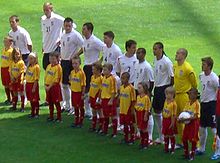
The England national football team have represented England in international football since the first international match in 1872. It is controlled by The Football Association (FA), the governing body for football in England, which is affiliated with UEFA and comes under the global jurisdiction of world football's governing body FIFA. England competes in the three major international tournament contested by European nations: the FIFA World Cup, the UEFA European Championship and the UEFA Nations League.

Steven George Gerrard is an English professional football manager and former player, who manages Saudi Pro League club Al-Ettifaq. Described by pundits and fellow professionals as one of his generation's greatest players, Gerrard spent the majority of his playing career as a central midfielder for Liverpool and the England national team, captaining both.

Paul Scholes is an English football coach, pundit, former player, and co-owner of Salford City. He spent his entire professional playing career with Manchester United, for whom he scored over 150 goals in more than 700 appearances between 1993 and 2013. He won 25 trophies, including 11 Premier League titles, two FA Cups and two UEFA Champions League titles. Scholes is widely regarded as one of the best midfielders of his generation and one of the greatest Manchester United players of all-time.

Gareth Southgate is an English professional football manager and former player who played as a defender and midfielder. He has been the manager of the England national team since 2016.
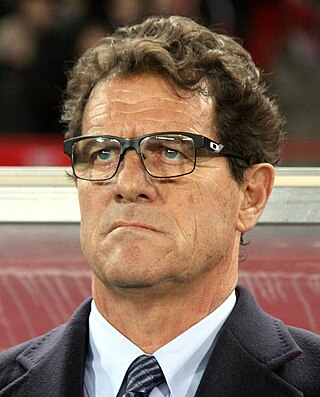
Fabio Capello is an Italian former professional football manager and player.

Frank James Lampard is an English professional football manager and former player who was most recently caretaker manager of Premier League club Chelsea. He is widely regarded as one of Chelsea's greatest players ever, and one of the greatest midfielders of his generation. He has the record of the most goals by a midfielder in the Premier League and of scoring the most goals from outside the box (41). He ranked highly on a number of statistics for Premier League players for the ten years from 1 December 2000, including most games and most wins.
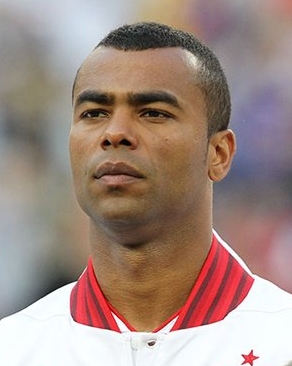
Ashley Cole is an English football coach and former player. As a player, he played as a left-back, most notably for Arsenal and Chelsea. Cole is considered by many critics and fellow professional players as one of the best defenders of his generation, one of the greatest English players of all time as well as one of the greatest left-backs in the history of the sport. Born in Stepney, London, Cole began his youth career at Arsenal and made his full debut for the club in November 1999, going on to make 228 appearances and scoring nine goals for the North London club. With Arsenal he won two Premier League titles, three FA Cups, and was an integral member of the "Invincibles" team of the 2003–04 season, who went the entire league season undefeated. Cole also made an appearance in Arsenal's first UEFA Champions League final in 2006; the club lost 2–1 to Barcelona.
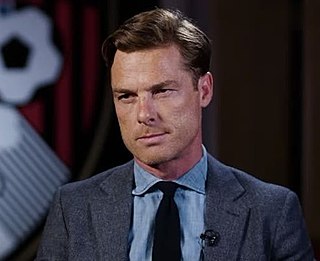
Scott Matthew Parker is an English professional football coach and former player. He was most recently the manager of Club Brugge.
The history of the England national football team, also known as the Three Lions, begins with the first representative international match in 1870 and the first officially-recognised match two years later. England primarily competed in the British Home Championship over the following decades. Although the FA had joined the international governing body of association football FIFA in 1906, the relationship with the British associations was fraught. In 1928, the British nations withdrew from FIFA, in a dispute over payments to amateur players. This meant that England did not enter the first three World Cups.

Michael Carrick is an English professional football coach and former player who is currently the head coach of Championship club Middlesbrough. He is one of the most decorated English footballers of all time and is best known for his 12-year playing career with Manchester United, whom he also captained. Carrick was a central midfielder, but he was used as an emergency centre-back under Alex Ferguson, David Moyes, Louis van Gaal and José Mourinho. His playing style was grounded in his passing ability.
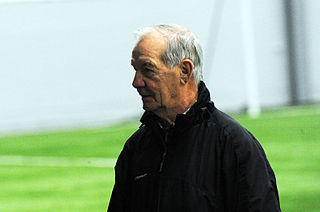
Tord Erland Grip is a Swedish former football coach and player. He has worked with several national teams, including England, Sweden, Indonesia, Mexico, the Ivory Coast and Kosovo.

Stephen McClaren is an English former professional footballer and coach who currently serves as an assistant coach for Premier League club Manchester United, in his second spell at the club.
On 1 September 2001 Germany met England during the qualifying stages of the 2002 World Cup, at the Olympiastadion in Munich. England won the game 5–1, helped by a hat-trick from Michael Owen. This was also the last match Germany played at the Olympiastadion in Munich.
In a sport, a Golden Generation, or Golden Team is an exceptionally gifted group of players of similar age, whose achievements reach or are expected to reach a level of success beyond that which their team had previously achieved. The term was first being cited by the media for Portugal's success during the FIFA Youth Championships in both 1989 and 1991. Below is a list of teams who have been referred to by the media as golden generations, most of which played in the 21st century.

The history of the England national football team, also known as the Three Lions, begins with the first representative international match in 1870 and the first officially-recognised match two years later. England primarily competed in the British Home Championship over the following decades. Although the FA had joined the international governing body of association football FIFA in 1906, the relationship with the British associations was fraught. In 1928, the British nations withdrew from FIFA, in a dispute over payments to amateur players. This meant that England did not enter the first three World Cups.

England v Germany (2000) was the final match to be played at the original Wembley Stadium. The match was a 2002 World Cup qualifying game between England and Germany. Germany won the game 1–0, with the goal scored by Dietmar Hamann. England manager Kevin Keegan resigned from his position after this game. The return fixture in Munich, Germany, resulted in a 5–1 victory to England with Swedish Sven-Göran Eriksson as new England manager.

The role of an England national football team manager was first established in 1946 with the appointment of Walter Winterbottom. Before this, the England national football team was selected by the "International Selection Committee", a process in which the Football Association (FA) would select coaches and trainers from the league to prepare the side for single games, but where all decisions ultimately remained under the control of the committee. A 1–0 defeat by Switzerland prompted FA secretary Stanley Rous to raise Winterbottom from "National Director of coaching" to "Manager".

The England national football team did not enter the first three FIFA World Cup tournaments but have entered all 19 subsequent ones, beginning with that of 1950. They have failed to qualify for the finals on three occasions – 1974, 1978 (Argentina) and 1994 – and have failed to advance from the group stage on three occasions: in 1950, 1958 and 2014. Their best performance is winning the cup as the host nation in 1966; they also finished in fourth place in 1990 in Italy, and in 2018 in Russia. Other than these, the team have also reached the quarter-finals on seven other occasions, the latest of which was in 2022 in Qatar.
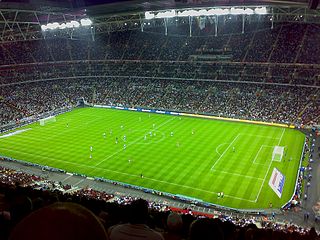
The following tables show the England national football team's all-time international record. The statistics are composed of FIFA World Cup, UEFA European Football Championship, UEFA Nations League and British Home Championship (1883–1984) matches, as well as numerous international friendly tournaments and matches.
